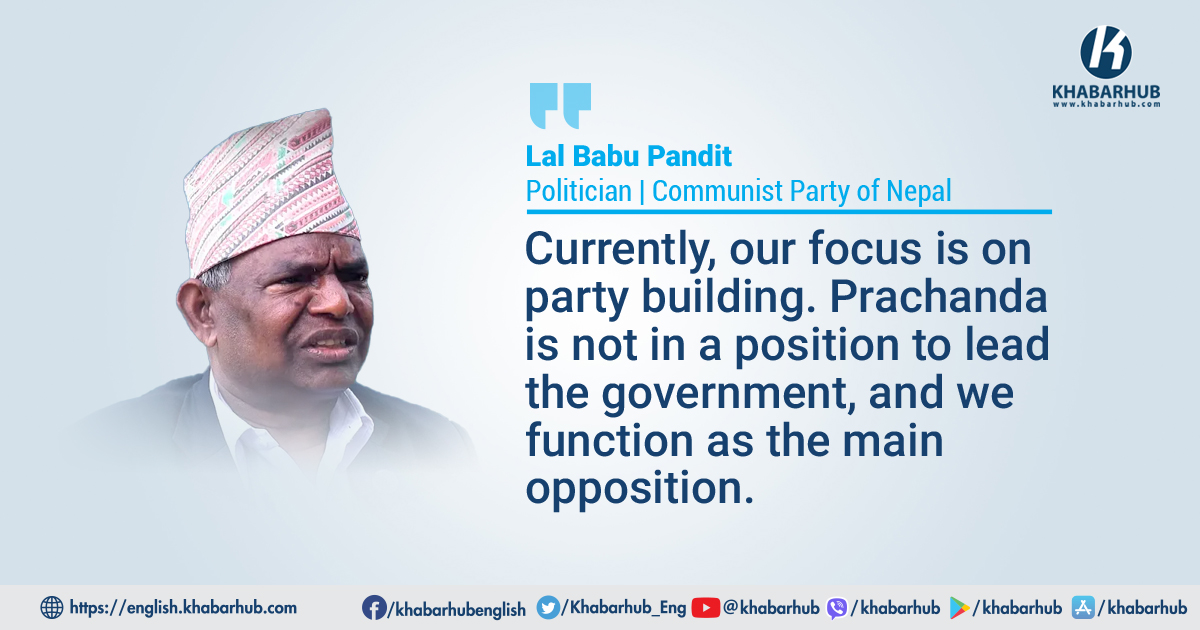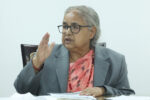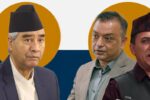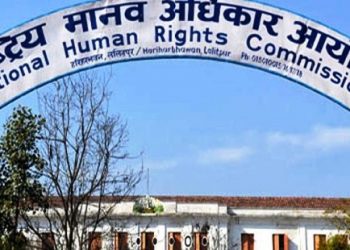KATHMANDU: Discontent with the Maoist Center’s working style within the ruling coalition, particularly the Nepali Congress has led to an analysis that the CPN-UML is actively exploring a new power equation.
The policy conference, known as the Mahasamiti meeting of the Nepali Congress, has revealed significant dissatisfaction among leaders and workers.
They have expressed that the party’s image has been tarnished due to its proximity to the Maoists, adding a dash of controversy to the already bitter ruling coalition.
In this critical juncture, the question arises: What are the odds of the UML, strategically positioned in the ‘cheat’ of power, thriving?
An insightful excerpt from a conversation with CPN-UML leader Lalbabu Pandit sheds light on this matter.
Are you sitting in the opposition and concluding that the ruling coalition has failed, that the leaders of the alliance have not been able to work?
The focus of the CPN-UML has shifted from power at the moment.
We are currently directing our efforts towards expanding the party’s organization and addressing the public’s concerns.
As the main opposition party with significant public support, we will discuss these matters in the central committee and decide on our program.
The ruling alliance has been likened to a rotten pavement, with public anger escalating. What is your perspective on this “unholy” alliance?
The ruling alliance, in the eyes of the people, resembles a deteriorating pavement.
This “unholy alliance” has not only disappointed the public but has also led to anger among them.
Trusting this alliance has resulted in the ruination of the country.
The questionable tactics employed by the ruling coalition to maintain power and stay in office through deceit have left a lingering sense of disappointment.
Why couldn’t the UML effectively play the role of opposition in Parliament?
People have high expectations from the members representing us in Parliament.
We are committed to fulfilling the anticipated role in the Parliament.
However, the current parliamentary structure limits the extent to which meaningful work can be accomplished.
Various parties with divergent objectives and tendencies, including attempts to conceal crimes, create a challenging environment.
This has led to questions regarding the Parliament’s adherence to its dignity, and we, too, find ourselves questioning its effectiveness.
Unfortunately, there seems to be limited scope for improvement.
Your party is often mentioned as one of those cheated or involved in concealing crimes within the parliament. How do you respond to this?
We are not opposed to legal punishment. However, it’s essential to distinguish between genuine wrongdoing and attempts to gain popularity through media or baseless allegations.
If someone has committed an offense, we fully support their lawful punishment.
Shouldn’t you review who gave the opportunity to strengthen the anti-constitution and anti-system elements?
After evaluating the expectations of the people, it is crucial to reflect on how the political landscape allowed the strengthening of elements against the Constitution and the system.
Politically, coalition parties often become self-centered, focusing on individual interests rather than fulfilling the aspirations of the people.
The pursuit of ministerial positions, for instance, may not yield the desired results for the individuals or the party involved, and this cycle has opened the door for such occurrences.
Are the Nepali Congress and the CPN-UML responsible for this deviation from the course set after the 2062/63 BS movement?
The shift in focus after the 2062/63 BS movement was not inherently wrong.
However, the lack of attention to political stability and the improvement of the development system is evident.
The top leadership became engrossed in power dynamics and weakening opponents, leading to an unfortunate culture of opposition that hindered collaborative progress.
The tradition of supporting good initiatives from the ruling party and constructive criticism seems to have waned, contributing to the current challenges.
Was establishing an interim parliament and giving the same status to the power in armed conflict as the UML the beginning of a wrong tradition?
The formation of an interim parliament aimed to bring conflicted powers into a peaceful process, a noble purpose.
However, the challenge lies in the development of a political culture within this framework.
Distinguishing between individuals engaged in politics with a history of criminality and criminals entering politics is crucial.
Politics influencing individuals can lead to positive change, while the intrusion of criminal elements into politics poses a threat to the political landscape itself.
How does UML view the constitutional amendment and the current distortions and discrepancies?
CPN-UML acknowledges the distortions and discrepancies observed in the constitutional amendment process and is committed to addressing them in line with the people’s demands.
The party remains open to constructive changes, emphasizing the importance of following the constitution and adapting it to better serve the nation’s needs.
Where is such weakness seen in the context of the constitutional amendment?
The weakness in the constitutional amendment is evident in various aspects.
One notable aspect is the increase in the number of people’s representatives, which, while apparent, has raised concerns.
The proportional system and reservation system have also been misused in some instances, hindering progress on constitutional issues.
Is the current public outcry on the streets for a system change or constitutional amendment?
The public outcry on the streets is multifaceted.
While there are expressions related to religion, especially in a Hindu-majority country like ours, the demand for a system change or constitutional amendment is not immediate.
Changes may come with time, and adjustments to such matters could occur in the future.
Dr. Baburam Bhattarai has made remarks about reading the Constitution. How does your party respond to this?
Dr. Baburam Bhattarai’s comments about reading the Constitution are repetitive and lack substance.
In the past, he advocated burning the Constitution and displayed unstable thoughts.
Such talk is not productive for the country, and the people have clearly understood the agenda of individuals like Dr. Baburam Bhattarai.
Your party was associated with disintegrationists and immersionists. Have you distanced yourselves from them?
We take pride in bringing individuals, including those living abroad, back to the country and involving them in the peace process.
Despite differing views, we successfully promulgated the constitution.
The focus now is on addressing weaknesses in the system’s development and ensuring good governance, as continuous efforts are required for positive development.
What is your party’s future role in central politics?
Currently, our focus is on party building. Prime Minister Pushpa Kamal Dahal Prachanda is not in a position to lead the government, and we function as the main opposition.
Prachanda is expected to join the opposition in the coming days.
Are you aligning with the Nepali Congress to turn the Maoists into the opposition?
We are not inclined to force anyone into a situation they cannot handle.
The current dynamics among Prachanda, Madhav Nepal, and KP Oli present a three-legged conflict without unity and cooperation. In 084, UML is moving forward independently.









Comment